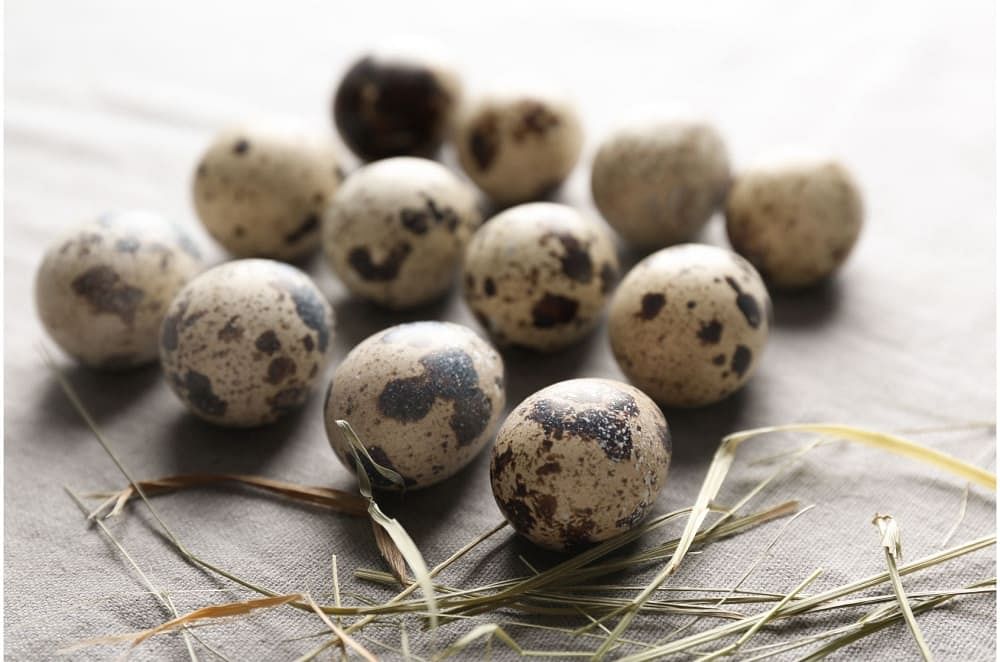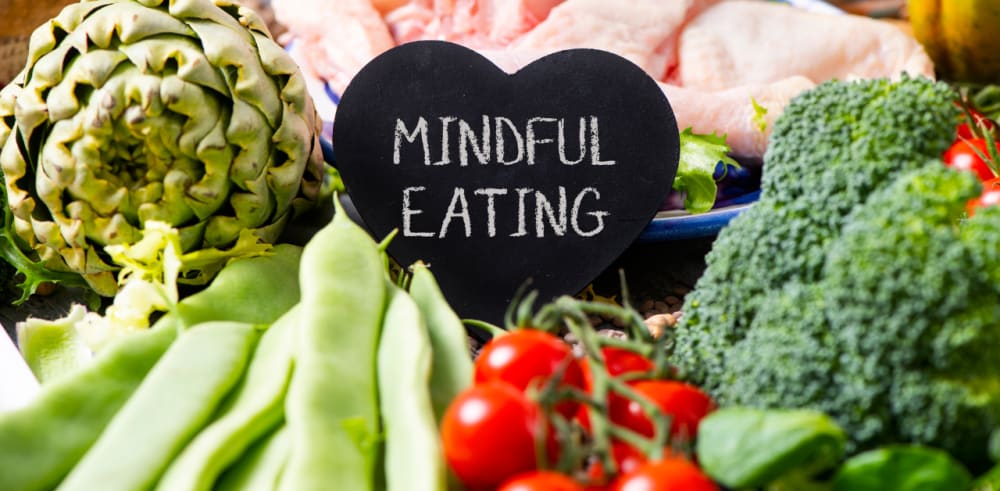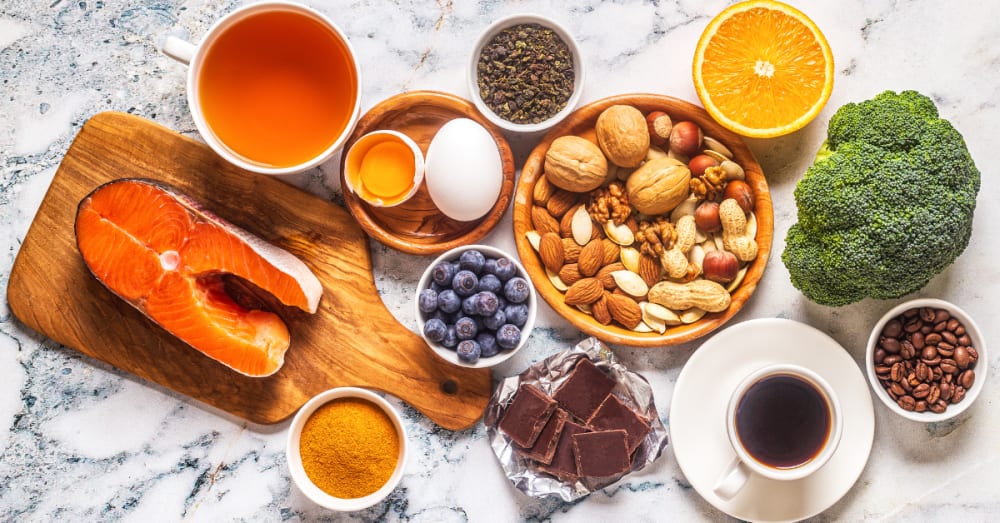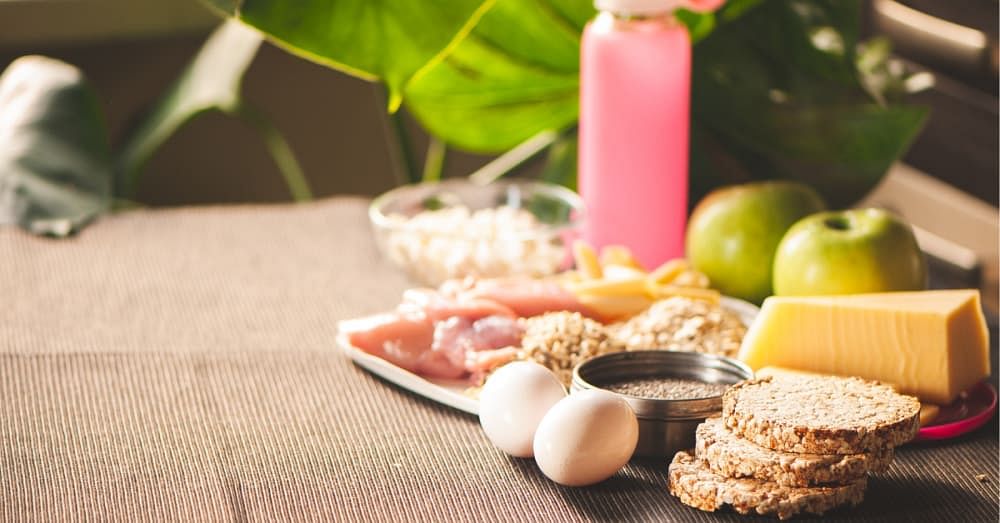What are Quail Eggs?
The quail is a small bird commonly found in Europe, North Africa, and Asia. The eggs laid by the quail bird are called quail eggs. These eggs are small compared to chicken eggs and in mixed white and tan shades with brown patches.
Quail bird eggs are loaded with various nutrients.
Quail Eggs Nutrition
According to the U.S. Department of Agriculture (USDA), 100g of raw, fresh quail egg contains 158 calories, 13g of protein, 11g of fat, 0.4g carbohydrates, 3.56g fatty acids, 0g fiber, and 74g of water. Quail eggs also contain minerals like calcium, iron, magnesium, potassium, and zinc. It also includes vitamins A, D, E, K, and B12.
Also Read: Is Egg Veg or Non Veg: The Answer Might Surprise You!
Quail Eggs Benefits
Due to the plenty of vitamins and nutrients in quail eggs are highly beneficial for our health. Here are some of the significant quail eggs benefits:
1) Strengthens bones
Our bodies need protein to repair our muscles and keep the bones healthy. As quail eggs are rich in protein, they help strengthen our bones.
2) Boosts immune system
Quail eggs are rich in antioxidants and also contain vitamins C and A. They help boost immunity and protect us from infections.
3) Speeds up metabolism
The Vitamin B in quail eggs boosts the body's metabolism and keeps us healthy.
4) Promotes respiratory health
As per a study, quail eggs as complementary alternative medicine is beneficial for asthma patients.
5) Helps in anti-aging
Quail eggs are rich in Vitamin A, an essential nutrient to prevent skin aging.
6) Helps treat acne
Since quail eggs are rich in protein and other nutrients, they help remove impurities from the skin and open up clogged pores, thus reducing acne.
7) Strengthens nail and hair
Quail eggs contain Vitamin B12, also called folate, which is beneficial for the growth of hair and nails. It also prevents hair loss and breakage of brittle nails.
8) Helps get rid of dandruff
Quail eggs have anti-inflammatory and anti-bacterial properties that help get rid of dandruff.
9) Aids in treating depression
As per a study, quail eggs yolk contain docosahexaenoic acid, which is beneficial in treating depression.
10) Regulates blood sugar level
Quail eggs have a low glycemic index, which causes slow absorption of sugar in the body. Hence, they help control blood sugar levels.
11) Promotes heart health
Since quail eggs do not contain carbohydrates, they are a rich source of nutrition for heart patients.
12) Aids in liver treatment
As per research, quail eggs help in liver treatment in rats. The eggs prevent the degeneration of hepatocytes and liver dysfunction.
13) Beneficial in treating allergies
As per a study, quail eggs comprise ovomucoid and ovoinhibitor components that relieve allergic reactions.
14) Boosts concentration and helps increase the IQ level
Quail eggs contain choline that promotes brain development and increases the IQ level in children.
Quail Eggs for Babies
Since quail eggs are rich in nutrients, they stimulate growth and also improve metabolism in children. Also, as stated above, quail eggs help boost IQ levels in children. They also aid in the reactivation of their nervous system.
Moreover, as quail eggs are a rich source of protein, they help in the overall development of children. Quail eggs, being rich in calcium, also prevent rickets in children. You can give one hard-boiled quail egg to a 9-12-month-old baby daily.
When your baby turns one year old, you can give them more than 1 quail egg daily. Toddlers between the age of 3 and 10 years can have 2-3 quail eggs daily.
Also Read: Egg Benefits for Skin
Quail Eggs Vs. Chicken Eggs
According to research, quail eggs are 3-4 times more nutritious than chicken eggs. In chicken eggs, the white portion is more than the yolk. However, in quail eggs, the ratio between the yolk and the egg-white is 4:1.
The fat and protein content in quail eggs is much more than in chicken eggs. Moreover, a lot of people are allergic to chicken eggs. On the other hand, quail eggs do not cause allergic reactions.
How to Prepare Quail Eggs?
Quail eggs are prepared similar to chicken eggs. You can have them in the form of an omelette, scrambled eggs, or boiled eggs. You can also poach, fry, or blend them.
While preparing quail eggs, you must note the technique of cracking them. You will not be able to crack quail eggs similarly to chicken eggs. The outer shell of quail eggs is much thicker. Therefore, you will have to break the egg with a knife or egg scissors.
Precautions You Need to Take While Eating Quail Eggs
While quail eggs are rich in nutrients, you must take some precautions while eating them.
- Pregnant women should avoid quail eggs: As quail eggs are unpasteurized, they can be harmful to pregnant women.
- People with high cholesterol should not have quail eggs: As you must have already understood, quail eggs contain more yolk, rich in fat. Therefore, people with high cholesterol levels should avoid quail eggs.
Quail Eggs Side Effects
Due to the small size, an adult can have 6-7 quail eggs in a day. However, eating an excess of quail eggs might cause harmful reactions. Here are some of the most significant quail eggs side effects:
- Hypotension: Quail eggs have a high amount of potassium that helps to control hypertension. However, an excess of quail eggs might increase the potassium levels in the body and may cause hypotension.
- Hypoglycemia: As quail eggs have a low glycemic index, sugar is absorbed slowly by the body. Therefore, the blood sugar level may shoot up. Excess consumption of quail eggs is harmful to diabetic patients.











